Developmental Psychology (PhD)
Program description.
The PhD program in Developmental Psychology emphasizes intersections among biology, culture, and context in developmental processes across areas of social, cognitive, language, and emotional development. Students apply a variety of methods (e.g., experimental, quasi-experimental, survey, observational, semi-structured interviews) to the study of individual and environmental influences on the development of infants, preschoolers, children, and adolescents at multiple, nested levels. Students take classes in developmental content areas and analytic methods and research, and advanced seminars on theories of change and theories of culture. Students engage in community and/or laboratory-based research for the entire length of their studies under the supervision of primary and secondary faculty mentors. Research is conducted in laboratories at New York University and the homes, daycares, schools, hospitals, neighborhoods, and community settings of the multi-ethnic and richly diverse city of New York. Additionally, international research is a cornerstone of the program, with faculty and students engaged in studying developmental processes and contextual influences across countries such as China, India, South Africa, Korea, and Peru, and with affiliated global faculty at NYU Shanghai and NYU Abu Dhabi campuses.
Admission to graduate programs in the Steinhardt School of Culture, Education, and Human Development requires the following minimum components:
- Statement of Purpose
- Letters of Recommendation
- Transcripts
- Proficiency in English
See NYU Steinhardt's Graduate Admissions website for additional information on school-wide admission. Some programs may require additional components for admissions.
See How to Apply for admission requirements and instructions specific to this program.

Program Requirements
Students take 39–51 credits depending on previous coursework and degrees. Academic offerings and requirements include the following:
- Courses in the foundational areas of psychology (e.g., developmental, social, personality, cognitive, learning, experimental, historical, neuropsychology)
- Courses in developmental psychology (e.g., cognitive, emotional, social, language, perceptual)
- Advanced content seminars in human development
- Sequences in research designs, methods, and statistics
- Active research involvement and attendance at weekly research colloquia
- Completion of a data-based dissertation
Credits dependent on previous graduate work; determined by admission.
Students admitted with a master's degree complete 6 credits.
Sample Plan of Study
APSY-GE 3020 Research Practicum in Developmental Psychology is taken 3 times for credit, and 3 times for 0 credit.
APSY-GE 3023 The Developmental Psychology Seminar: Current Topics in Developmental Science is taken for 0 credits.
Learning Outcomes
Upon successful completion of the program, graduates will:
- Demonstrate ethical skills, social skills of engagement, and organizational and time management skills as a professional in the field of Developmental Psychology through diligence, responsibility, effective time management and completion of projects, and interactions with peers, advisors, scientists, community stakeholders, and leaders in the field.
- Demonstrate research expertise in an area of study and advance the field of Developmental Psychology through dissemination of research findings in scholarly publications and at national and international conferences.
- Demonstrate expertise using multiple research tools, methods, designs, and analytic approaches for addressing issues around developmental change in context.
STEM OPT Benefits for International Students
Nyu policies, steinhardt academic policies.
If you’re an international student, you may be able to work in the United States after graduation for an extended period of time. Most students studying on F-1 visas will be eligible for 12 months of Optional Practical Training (OPT) off-campus work authorization. F-1 students in this program may also be eligible for the STEM (Science, Technology, Engineering, or Mathematics) OPT extension, allowing you to extend your time in the United States to pursue degree-related work experience for a total of 36 months or 3 years. For more information on who can apply for this extension visit NYU’s Office of Global Services: STEM OPT .
University-wide policies can be found on the New York University Policy pages .
Additional academic policies can be found the Steinhardt academic policies page .
Print Options
Send Page to Printer
Print this page.
Download Page (PDF)
The PDF will include all information unique to this page.
- Skip to Main
- Program of Study
- Course Offerings
Department of Psychology
as.nyu.edu/psychology 6 Washington Place, Room 423, New York, NY 10003-6634 • 212-998-7920
Chair of the Department
Professor Rehder
Associate Chair of the Department
Associate Professor Rhodes (Interim)
Director of Undergraduate Studies
Associate Professor Ma
Associate Director of Undergraduate Studies
Professor Hilford
Cognition and Perception Program Coordinator
Professor Landy
Social Program Coordinator
Professor Trope
The Department of Psychology at NYU approaches the study of mind and behavior from many perspectives. Cognitive psychologists focus on perception, memory, attention, language, and thinking. Social and personality psychologists determine how social beliefs, attitudes, and decisions are formed and maintained. Cognitive neuroscientists study features and functions in the brain as they relate to certain mental processes. Developmental psychologists seek to understand factors that affect and influence individuals across various ages. These many perspectives are reflected in undergraduate course offerings, all of which emphasize the scientific basis of psychology.
In addition to its course offerings, the department encourages advanced undergraduates to become involved in faculty research through the Research Experiences and Methods course and the honors program. Highly qualified students are admitted to the honors program in their sophomore or junior year, take honors seminars, participate in primary research, and write an honors research thesis under close faculty supervision.
NYU psychology majors graduate with an excellent academic foundation in psychology and are well-prepared for graduate study in the field. Graduates are accepted by top programs throughout the country. Others go on to careers in law, business, medicine, and education.
Search NYU Steinhardt
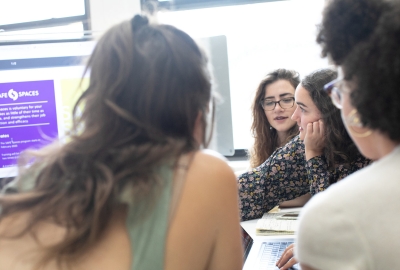
Applied Psychology
Since 1989, the Department of Applied Psychology has been home to some of the best minds and boldest thinking in the fields of psychology and counseling. Unlike other psychology programs that are very focused on theory, simply for theory, Applied Psychology focuses on understanding, impacting on and informing lived experience in the specific settings and cultural contexts.
The Applied Psychology faculty do very solid, integrative, and theoretical work, by using varied methodologies but our interest is always in the question – how does this matter for real people? Individually, in the family context, and in communities in the U.S. and globally.
When you come to and come through any of our programs, you’re going to be the kind of scholar that can answer the question – how does culture manifest itself in relation to the questions that I’m asking. You’re going to be introduced to methodologies that will allow you to answer those questions in fine-tuned and thoughtful ways. You’re going to be able to apply that knowledge in a way that really transforms people’s lives globally.
Undergraduate Degrees
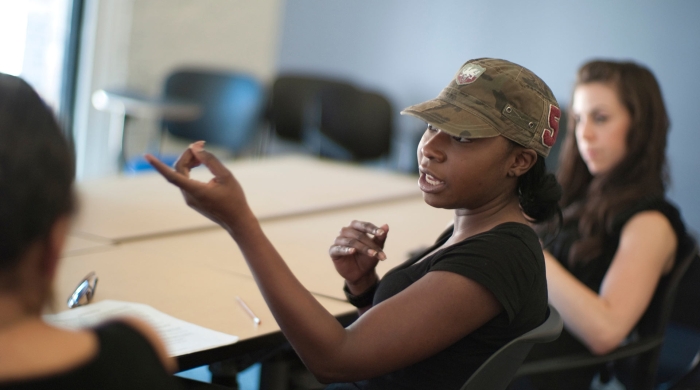
Bachelor of Science Applied Psychology
Applied Psychology combines theory, research, and applications to real-world problems. Prepare for graduate study or a career in psychology or related fields.

Bachelor of Science Global Public Health / Applied Psychology
This major bridges psychology and public health principles with the goal of improving health outcomes among diverse populations.
Master's Degrees
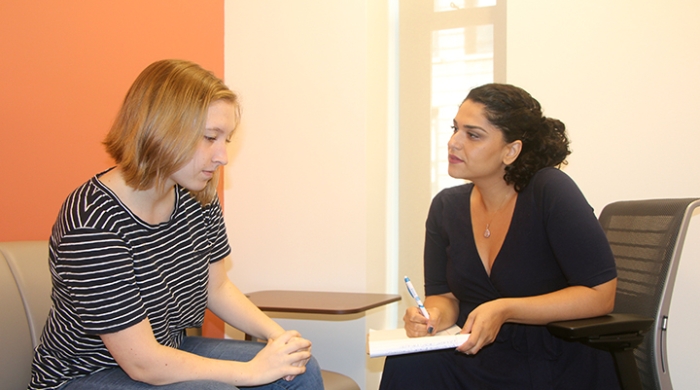
Master of Arts Counseling for Mental Health and Wellness On-Campus Degree
This master’s degree is designed for aspiring mental health counselors who want to treat mental illness and help clients reach their potential.
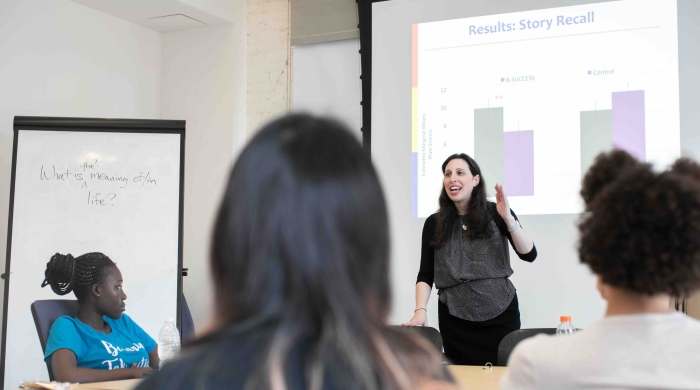
Master of Arts Human Development Research and Policy
This program will prepare you to understand human development across the lifespan as well as the psychological, cultural, and socio-ecological factors that influence the contexts and systems in which people develop.

Master of Arts School Counseling and Bilingual School Counseling Online Degree
NYU Steinhardt’s online master of arts in School Counseling is designed to equip aspiring pre-K–12 counselors in preparing them for certification and employment in public and private schools across the country.
Doctoral Degrees

Doctor of Philosophy Counseling Psychology
Build on your knowledge of counseling psychology and prepare for a career as a psychologist in community agencies, clinics, hospitals, or private practice.
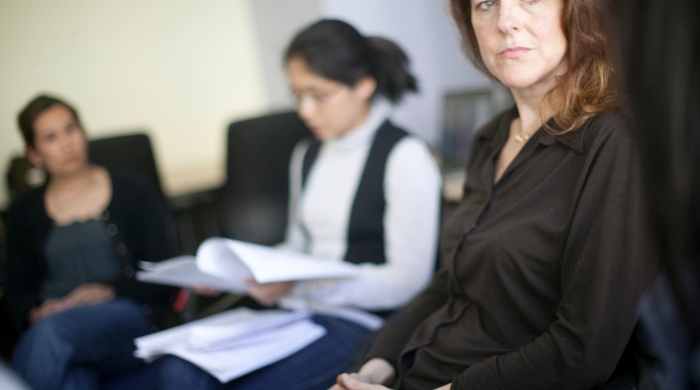
Doctor of Philosophy Developmental Psychology
Gain a strong foundation in developmental theories and cutting-edge research tools and methods for studying development in context.
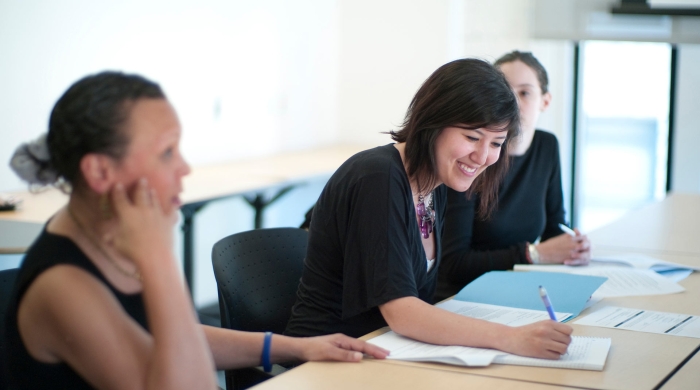
Doctor of Philosophy Psychology and Social Intervention
Prepare for a career as a social scientist who can understand, transform, and improve the contexts and systems in which humans develop across the lifespan.

246 Greene Street , New York, NY 10003
P: 212-998-5555 E: [email protected]
PhD in Psychology Further Your Understanding of Psychology
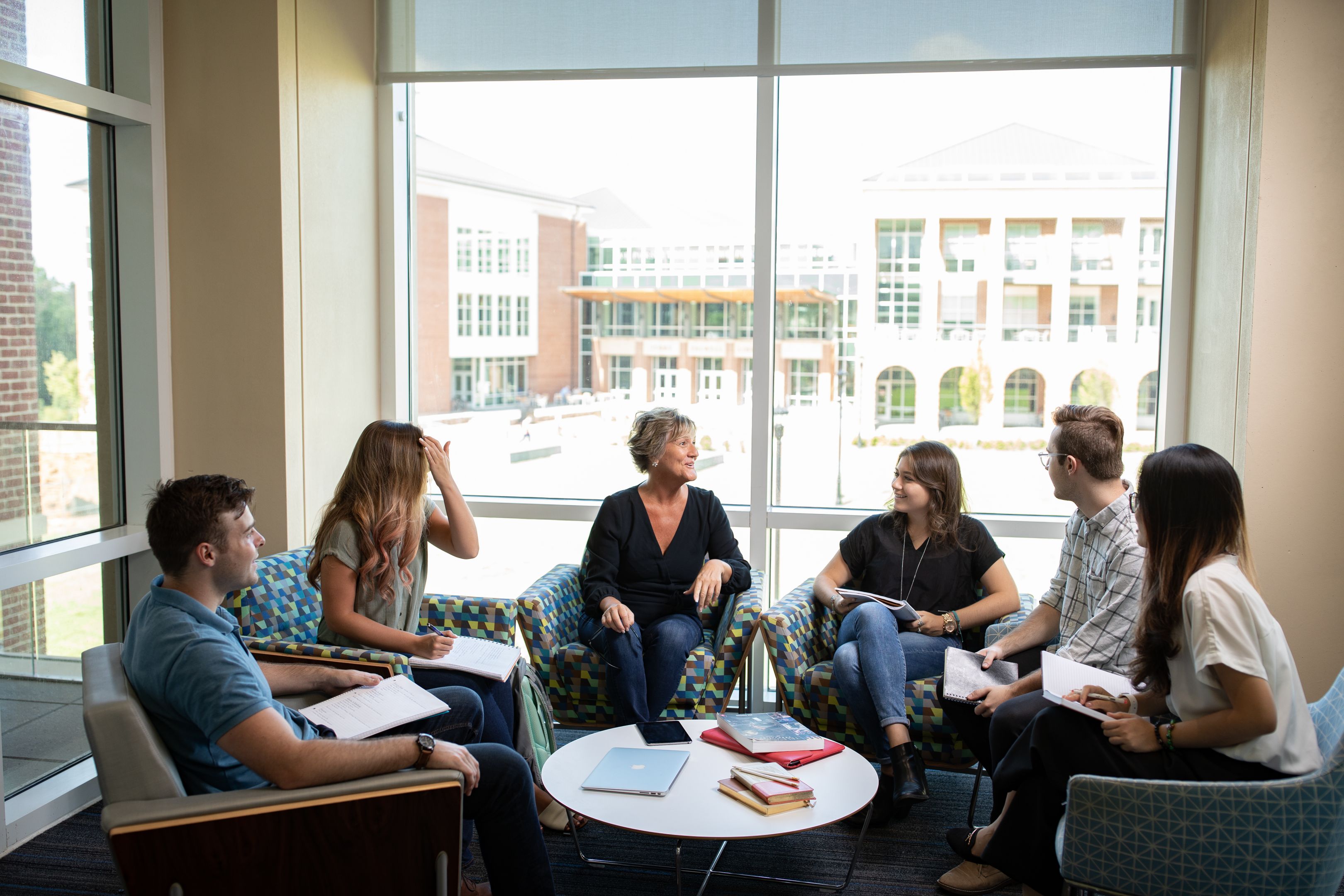
Degree Options
View Degree Options
100% online, 8-week courses
Transfer in up to 50% of the degree total
Understand the Human Experience from a Biblical Worldview with an Online PhD in Psychology
Do you want to deepen your knowledge in psychology and use your research to contribute to the field of understanding human behavior? Liberty University’s PhD in Psychology can provide rigorous research training that can better prepare you for a career in academia and research. An online PhD in Psychology is ideal for students who want to bring new knowledge of human behavior to the field and find new ways to help people heal, grow, and thrive.
Liberty’s PhD in Psychology is designed to prepare you to evaluate research and to understand the truth about human behavior from a biblical worldview. Our mission is to Train Champions for Christ , and we fulfill this mission by training professionals to use science and biblical values to understand the full breadth of the human experience. Our unique, biblically-based approach to this field can help prepare you to make a positive impact on those you work with.
With Liberty’s PhD in Psychology, you can take part in optional face-to-face on-campus intensives that will allow you to meet faculty and other students while you develop your professional and research skills.

What Will You Study in Our PhD in Psychology Degree?
Liberty’s online PhD in Psychology is designed to build on your previous study and experience in human psychology and develop you into a researcher and psychologist who demonstrates ethical and academic excellence while integrating biblical values into your practice.
Through this program, you will:
- Learn how an appreciation of biblical values enhances psychiatric practice by putting human value at the forefront of technique and theory.
- Develop a grounded critical approach to psychiatric research and theory while integrating a biblical worldview into approaches to current issues in psychology.
- Master psychiatric research and writing techniques that can establish your work in the study of human behavior.
- Complete dissertation research through your program with mentorship from your professors so that you have the option to present research at conferences.
Through this program, you will be encouraged to become a thought leader on a variety of topics related to the human experience. Our goal is to help you venture into the world of psychiatric research and practice and offer insights based on biblical foundations of truth that can help people heal and thrive.
Featured Courses
- PSYC 510 — Research Methods and Statistics in Psychology I
- PSYC 710 — Psychological Research and Biblical Worldview
- PSYC 716 — Theories and Research in Industrial/Organizational Psychology
- PSYC 775 — Teaching of Psychology
Degree Information
- This program falls under the School of Behavioral Sciences .
- View the Graduate Behavioral Sciences Course Guides (login required).
- View the PhD in Psychology Dissertation Handbook
- The online PhD in Psychology is a non-clinical, non-licensure program.
Why Choose Liberty’s Online Degree?
To help you meet your educational goals in a way that fits your life, our online PhD in Psychology provides scheduling flexibility and keeps affordability in mind. Our PhD in Psychology’s online format allows you to take your classes from home without traveling to campus. However, this program still provides a community of psychology professionals and the ability to take optional intensive courses to allow you to connect in person.
Throughout this program, Liberty incorporates a biblical worldview into your instruction. This perspective in your research and practical training in psychology can help you develop professional and academic excellence without compromising an ethical appreciation for human life. Additionally, our caring faculty are devoted to helping you grow personally and academically.
With our online PhD in Psychology, you can learn effective clinical techniques, essential behavioral theory, and develop your research and writing expertise. You can be equipped with a thorough understanding of human thought and behavior while developing your own research to further the field.
Earning a PhD in Psychology online with Liberty means that you will be trained to engage with research and psychiatric practice critically and biblically. If you are interested in becoming a thoughtful, articulate, and research-focused professional, then this is the program for you.

Ranked in the Top 10% of Niche.com’s Best Online Schools in America
- What Sets Us Apart?
- Private Nonprofit University
- 600+ Online Degrees
- No Standardized Testing for Admission
- Transfer in up to 75% of an Undergrad Degree
- Transfer in up to 50% of a Grad/Doctoral Degree
Potential Career Opportunities for PhD in Psychology Graduates
- Corporate psychologist
- Program or department head
- Project manager
Degree Options for Our PhD in Psychology Program
Focus your studies in psychology with a specialization.
Behavioral Health Leadership
Through the PhD in Psychology – Behavioral Health Leadership , you can hone your research and leadership skills as you prepare to pursue administrative and management positions in mental and behavioral health organizations.
View the Degree Completion Plan .
Developmental Psychology
Through the online PhD in Psychology – Developmental Psychology , you can learn about research theory related to human development, including cognitive development, social development, and language development.
General Psychology
The online PhD in Psychology – General Psychology provides an in-depth study of advanced psychiatric research and practice while giving you room to customize your course content.
Industrial/Organizational Psychology
In the online PhD in Psychology – Industrial/Organizational Psychology track, you will study human behavior in organizations and the workplace. You will focus on deriving principles of individual, group, and organizational behavior and applying that knowledge to developing solutions for challenges in the workplace.
Social Psychology
In the online PhD in Psychology – Social Psychology track, you can learn about research and theory related to social processes and relationships, attitudes, and other constructs related to social psychology.
In the online PhD in Psychology – Theology track, you can learn how to study the Bible and integrate that study of the Bible with research in psychology to further your understanding of psychological concepts.

Not sure what to choose?
Speak to one of our admissions specialists to help you choose the program that best fits your needs.
Tuition & Aid
Your success is our success, which is why we are committed to providing quality academics at an affordable tuition rate. While other colleges are increasing their tuition, we have frozen tuition rates for the majority of our undergraduate, graduate, and doctoral programs for the past 9 years – and counting.
Eligible current and former military service members and their spouses may qualify for a special rate of $300/credit hour ( learn more ) .
All Tuition & Fees
Financial Aid & Scholarships
Financial Aid Forms & Eligibility
Scholarship Opportunities
Admission Information for Our PhD in Psychology
Admission requirements.
- A non-refundable, non-transferable $50 application fee will be posted on the current application upon enrollment (waived for qualifying service members, veterans, and military spouses – documentation verifying military status is required) .
- Send official college transcripts (mailed as sealed, unopened copies or sent via a direct electronic transcript system). A regionally or nationally accredited master’s degree with at least a 3.0 GPA is required for admission in good standing.
- Contact information for 2 recommenders is required (approved recommenders are the student’s former college professors or supervisors).
- Statement of Purpose is required (1,000-1,500 words, double spaced).
- Departmental approval is required.
- Applicants whose native language is other than English must submit official scores for the Test of English as a Foreign Language (TOEFL) or an approved alternative assessment. For information on alternative assessments or TOEFL waivers, please call Admissions or view the official International Admissions policy .
Preliminary Acceptance
If you are sending in a preliminary transcript for acceptance, you must:
- Be in your final term and planning to start your doctoral degree after the last day of class for your master’s degree.
- Complete a Master’s Self-Certification Form confirming your completion date. You may download the form from the Forms and Downloads page or contact an admissions counselor to submit the form on your behalf.
- Submit an official transcript to confirm that you are in your final term. The preliminary transcript must show that you are within 6 credit hours of completion for a 30-48 credit hour master’s degree or within 9 credit hours of completion for a 49+ credit hour master’s degree.
- Send in an additional, final official transcript with a conferral date on it by the end of your first semester of enrollment in the new doctoral degree.

Transcript Policies
Official college transcript policy.
An acceptable official college transcript is one that has been issued directly from the institution and is in a sealed envelope. If you have one in your possession, it must meet the same requirements. If your previous institution offers electronic official transcript processing, they can send the document directly to [email protected] .
Admissions Office Contact Information
(800) 424-9596
(888) 301-3577
Email for Questions
Email for Documents
Liberty University Online Admissions Verification
1971 University Blvd.
Lynchburg, VA 24515
Liberty University is dedicated to providing world-class educational experiences to military students across the globe.
Who May Qualify?
- Active Duty
- Reserve/National Guard
- Veterans/Retirees
- Spouses of Service Members and Veterans/Retirees
Military Tuition Discount
We want to help you find the doctoral degree you want – at a price you’ve earned. As a thank-you for your military service, Liberty University offers eligible current and former service members like you or your spouse multiple pathways to earn a doctoral degree for only $300/credit hour . Find out how you can take advantage of this unique opportunity as you work toward your goal of reaching the pinnacle of your profession – for less.
Frequently Asked Questions
Are there opportunities to interact in-person with peers.
You can meet faculty and fellow students in person through optional on-campus intensives.
Can I have an impact through this degree?
Through your dissertation, you can contribute to the understanding of human experience and behavior.
Inner Navigation
- What Will You Study?
- Potential Careers
- Specializations
- Tuition & Aid
- Admission Information
Have questions?

Are you ready to change your future?
Apply FREE This Week*
Request Information
*Some restrictions may occur for this promotion to apply. This promotion also excludes active faculty and staff, military, non-degree-seeking, DGIA, Continuing Education, WSB, and certificate students.
Request Information About a Program
Request info about liberty university online, what program are you interested in, choose a program level.
Choose a program level
Bachelor’s
Master’s
Certificate
Select a Field of Study
Select a field of study
Select a Program
Select a program
Next: Contact Info
Legal full name.
Enter legal full name
Legal Last Name
Enter legal last name
Enter an email address
Enter a phone number
Full Address
Enter an address
Apt., P.O. Box, or can’t find your address? Enter it manually instead .
Select a Country
Street Address
Enter Street Address
Enter State
ZIP/Postal Code
Enter Zip Code
Back to automated address search
Start my application now for FREE

Ph.D. in Clinical Psychology Program
- Program Overview
- UC San Diego
- JDP Justice, Equity, Diversity, and Inclusion (JEDI) Committee
- Program Committees
- Student Council
- SDSU Psychology Clinic
- Program Administration
- Program Faculty
- Practicum Supervisors
- Doctoral Students
- Degree Learning Outcomes
- Major Areas of Study
- Clinical Practicum
- Course Catalog
- Facilities & Centers
- Research and Clinical Training
- Student First-Authored Publications
- Selection Process
- What We Consider for a Competitive Application
- How to Apply
- Faculty Mentorship
- Financial Support
- Admission FAQs
- Student Admissions, Outcome, and Other Data
- Basic Needs Resources
- Community/Cultural Centers
- Financial Aid & Scholarships
- Graduate Affairs
- Graduate Housing
- Student Disability Centers
- Student Health & Well-Being
- Student Handbook Table of Contents
- Mentor-Student Guide
- Registration
- Classes / Sample Curriculum
- Cognitive Psychology Requirement
- Statistics and Research Design
- Emphasis in Child and Adolescent Psychopathology
- Emphasis in Quantitative Methods
- Master of Science in Clinical Psychology
- Master of Public Health
- Class Attendance
- Transcripts
- Change in Major Area of Study
- Waiving Courses
- Grounds for Dismissal
- Student Records
- Program Milestone Checklist/Timelines
- Guidance Committee
- Second Year Project
- Clinical Comprehensive Exam
- Behavioral Medicine Comprehensive Exam
- Experimental Psychopathology Comprehensive Exam
- Neuropsychology Comprehensive Exam
- Dissertation
- Advancement to Candidacy
- After Graduation
- Student Funding
- Tuition and Fees
- Establishing Residency
- International Students
- Financial Aid
- Incentive Awards & Program Support
- Travel Funds
- Ethical Standards/Professional Behavior
- Where Do You Go When You Have A Problem, Question, Concern, or Complaint?
- Policy on Disclosure of Potential Conflicts of Interest
- Representation of Your Affiliation
- Web page and blog policy
- Membership in APA
- Outside Employment
- Requests to Spend Time Off-Site
- Research Experience
- Human Subjects/IRB
- Practicum Placements
- Accruing Clinical Hours in the Context of Research Activities
- Supervision
- Tracking Clinical Hours
- Integrated Reports
- Practicum Grades
- Policy on Working with Diverse Clients/Patients
- Prerequisites
- JDP Student Awards
- Student Portals
- Campus ID Cards
- E-Mail Accounts
- Change of Address
- Leave of Absence
- Second Year Project Cover Sheet
- Dissertation Proposal Defense Announcement
- Final Dissertation Defense Announcement
- Spring Student Evaluation
- Individual Development Plan (IDP)
- MPH Interest Form
- JDP SharePoint
SDSU / UC San Diego Joint Doctoral Program in Clinical Psychology
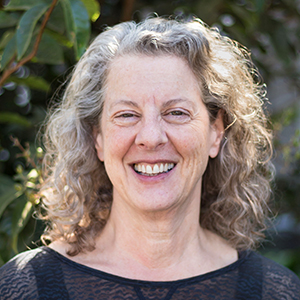
About the Program
The program provides outstanding education and training to scientifically oriented research professionals who will make significant contributions to clinical psychology in their areas of specialization. The program combines the scholarly resources and offerings from the Department of Psychology in SDSU’s College of Sciences and the Department of Psychiatry in UC San Diego’s School of Medicine.
As a clinical science program, we emphasize integrating research and practice in training, activities, and experience, allowing students to participate in clinical research activities throughout the program. The development of research skills and attitudes is the foundation of training; clinical psychologists will have duties encompassing teaching, research, diagnosis, treatment, consultation, and program evaluation and design, including applying research skills and knowledge to various areas and settings. Our doctoral program enables students to be at the forefront of developments and applications in clinical psychology.
The program includes an initial two-year core curriculum of formal instruction followed by additional experience/instruction in the student’s chosen major area of study. The SDSU/UC San Diego JDP in Clinical Psychology curriculum is based on a twelve-month academic year. Students typically complete the program within five to six years, including an American Psychological Association (APA)-accredited internship.
Completion of the core curriculum ensures that all students have a common background in:
- Empirical psychology (biological, cognitive, affective, developmental, and social bases of behavior).
- Conceptualizations of psychopathology.
- Theory and techniques of psychological assessment.
- Therapeutic interventions and therapeutic skills.
- Experimental design and statistics.
Clinical activities, integrated with formal instruction, begin in the second year. Students will acquire higher clinical proficiency through practicum placements at nearly 30 training sites supervised by SDSU/UC San Diego joint-doctoral faculty representing research and clinical expertise in virtually every topic relevant to clinical psychology.
Major areas of study:

Specialized training is conducted through seminars, tutorials, and extensive research and clinical experience under faculty supervision. The APA-accredited clinical internship typically occurs in the fifth or sixth year. Whenever possible, clinical practica and therapeutic activities are coordinated with the student’s progression through courses and research activities. Summers are utilized to offer more concentrated research and clinical training.
Program History
The SDSU/UC San Diego Joint Doctoral Program in Clinical Psychology began in 1985, was first accredited by APA in 1990, and has been reaccredited consistently since then. Since 1949 and 1964, SDSU and UC San Diego, respectively, have been regionally accredited by the Western Association of Schools and Colleges (WASC) Senior College and University Commission . In addition, the School of Medicine at UC San Diego is accredited by the Association of American Medical Colleges (AAMC) .
The program emphasizes and appreciates broadly defined human diversity and offers extensive opportunities for students to become involved in research and clinical activities focused on diverse, underserved populations.
Recently, rankings calculated by the National Research Council (NRC) placed the SDSU/UC San Diego joint doctoral program among the top five psychology programs in the country, regardless of whether they were clinical or nonclinical. Similar rankings have been reported by Academic Analytics in 2010 and by Stewart, Roberts, and Roy (2007).
This program is a good-standing member of the Council of University Directors of Clinical Psychology (CUDCP), the Academy of Psychological Clinical Science (APCS), the Council of Clinical Health Psychology Training Programs (CCHPTP), and the Association of Psychology Training Clinics (APTC). These organizations strive to provide quality education and training at the doctoral level, ensuring the doctoral program stays abreast of changes and developments in the field.
Questions related to the program’s accredited status should be directed to the Commission on Accreditation:

Office of Program Consultation and Accreditation American Psychological Association 750 1st Street NE Washington, DC 20002 Phone: (202) 336-5979 E-mail: [email protected]
- Department of Psychology >
- Graduate >
- Graduate Admissions >
Clinical PhD Program
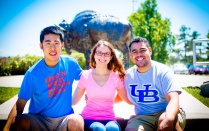
For information regarding the online application and admissions process, please visit the UB Graduate School.
- UB's General Admission Requirements
- Admissions FAQs
- Check Your Admissions Status

Follow us on Facebook and Twitter for weekly departmental updates.
Admission Requirements and Process
The Department of Psychology at the University at Buffalo uses a holistic admissions process in our consideration of applications. This means that we evaluate the entire application, rather than any single indicator or a few indicators. Thus, applicants are viewed as a whole person, the sum of their experiences, accomplishments, and aspirations. Consistent with this, we do not rely on or use “cut offs” for numerical indices of an academic record such as grade point average. A holistic approach also means that a candidate who may be less strong in some areas, can still have a highly competitive application by having greater strength in other areas. All elements of an application are taken into consideration, to maximize a good fit of the applicant with our training program and potential mentors, to reduce bias that can result from reliance on a limited number of components, and to reduce inequities in access to opportunities for graduate training.
Over the years, we have learned that a holistic admissions process helps us identify applicants who are likely to succeed in our graduate programs, brings a diversity of experience and ideas into our academic community, and supports a fair review of all applicants. Our goal is to recruit the next generation of academic psychologists who are passionate about making new discoveries and generating new knowledge in their chosen discipline. We expect students to bring hard work, professional ambition, resilience, grit, intellectual acumen, and enthusiasm to our graduate programs.
Although we value quantitative criteria like GPA, we take a broad view of academic excellence and recognize that indices of success in our graduate programs and professional achievement cannot be reduced to numbers alone. In short, we endeavor to balance quantitative and qualitative indices of success. Because we want to give students the greatest opportunity to thrive in our program, we place a strong emphasis on fit with our programs and potential faculty mentors. A highly qualified applicant may not be strongly considered if their interests and goals do not provide a good fit with the orientation of our training program or with faculty research interests. Accordingly, we consider the following components in our admissions decisions: personal statement, undergraduate transcript and GPA (and prior graduate record if applicable), letters of recommendation, and resume/research experience. Interviews are required for applicants to the Behavioral Neuroscience, Clinical, and Social-Personality doctoral programs, and our MA programs in General Psychology; interviews are not required for applicants to the Cognitive Psychology doctoral program. After initial review of applications, the selected applicants to program requiring an interview will be contacted by prospective advisors to set up an interview time.
Schomburg statements are optional for applicants to our doctoral programs interested in being considered for a Schomburg Fellowship. These statements are not used for admissions decisions.
Clinical PhD Program:
Components of the application and how they are used, personal statement (required).
Helps contextualize the more quantitative and objective credentials of an applicant. The statement is used to evaluate the applicant’s goals and fit with the program and research interests of the faculty as well as how they would contribute to the diversity of thought and perspectives.
Prompt for Personal Statement (1000 words or less):
Describe the area of research you are interested in pursuing during your graduate studies and explain how our program would help you achieve your intellectual goals. The statement should include your academic background, intellectual interests and training or research experience that has prepared you for our program. The statement should also identify specific faculty members whose research interests align with your own interests.
Submitting Personal Statement:
Uploaded as part of the online application.
Transcript and GPA (required)
Provides evidence that the applicant is seeking challenging coursework, while excelling and showing academic growth. The University at Buffalo requires an undergraduate GPA of 3.0 or higher. However, applications with an undergraduate GPA below 3.0 can still be considered, particularly when other components of the application are strong (e.g., a high graduate GPA, etc.).
Submitting transcripts:
Upload scanned copies of all undergraduate and graduate transcripts as part of your online application. Include the English translation, if applicable.
Letters of recommendation (3 required):
Provides a third-party endorsement of the applicant’s attributes, ability to succeed in the graduate program, and potential to contribute to the field. The letter offers a perspective on the applicant’s prior achievements and potential to succeed, along with concrete examples of the subjective traits described in other elements of the application.
Submitting Letters:
Letters must be submitted electronically. Further instructions are included in the online application.
Resume and research experience (required):
Provides information on how the applicant has practically applied ideas and concepts learned in the classroom. It helps show that applicants possess the skills and dispositions needed to conduct extensive research and make substantive contributions to their chosen field.
Submitting resume
Interviews are a way for programs to get to know applicants as a person. They provide a qualitative means of: (a) contextualizing quantitative and objective credentials, and (b) evaluating how well an applicant’s goals and training needs fit with the program and potential mentors. In addition, the Clinical PhD program also uses the interview to evaluate suitability for clinical work.
Schomburg Statement (optional Applications to our doctoral program):
What is a schomburg fellowship.
A Schomburg Fellowship offers support for students in doctoral programs who can demonstrate that they would contribute to the diversity of the student body, especially those who can demonstrate that they have overcome a disadvantage or other impediment to success in higher education. In order to be eligible for the Schomburg Fellowship, you need to be either a U.S. Citizen or Permanent Resident and have a cumulative undergraduate GPA of 3.0 or above.
Here is a link to more information about Schomburg Fellowships.
https://arts-sciences.buffalo.edu/current-students/funding-your-degree/graduate-awards-fellowships/schomburg-fellowship.html
The Schomburg statement provides useful information in helping the faculty decide whether to nominate an applicant for the Schomburg Fellowship.
Schomburg Statement:
If you would like to be considered for a Schomburg Fellowship, please upload a written statement with your online application (maximum of 500 words) describing how you will contribute to the diversity of the student body in your graduate program, including by having overcome a disadvantage or other impediment to success in higher education. Please note that such categorical circumstances may include academic, vocational, social, physical or economic impediments or disadvantaged status you have been able to overcome, as evidenced by your performance as an undergraduate, or other characteristics that constitute categorical underrepresentation in your particular graduate program such as gender or racial/ethnic status.
Submitting a Schomburg statement:
Academia.edu no longer supports Internet Explorer.
To browse Academia.edu and the wider internet faster and more securely, please take a few seconds to upgrade your browser .
Enter the email address you signed up with and we'll email you a reset link.
- We're Hiring!
- Help Center

Land use changes in the environs of Moscow

Related Papers
Eurasian Geography and Economics
Grigory Ioffe
komal choudhary
This study illustrates the spatio-temporal dynamics of urban growth and land use changes in Samara city, Russia from 1975 to 2015. Landsat satellite imageries of five different time periods from 1975 to 2015 were acquired and quantify the changes with the help of ArcGIS 10.1 Software. By applying classification methods to the satellite images four main types of land use were extracted: water, built-up, forest and grassland. Then, the area coverage for all the land use types at different points in time were measured and coupled with population data. The results demonstrate that, over the entire study period, population was increased from 1146 thousand people to 1244 thousand from 1975 to 1990 but later on first reduce and then increase again, now 1173 thousand population. Builtup area is also change according to population. The present study revealed an increase in built-up by 37.01% from 1975 to 1995, than reduce -88.83% till 2005 and an increase by 39.16% from 2005 to 2015, along w...
Elena Milanova
Land use/Cover Change in Russia within the context of global challenges. The paper presents the results of a research project on Land Use/Cover Change (LUCC) in Russia in relations with global problems (climate change, environment and biodiversity degradation). The research was carried out at the Faculty of Geography, Moscow State University on the basis of the combination of remote sensing and in-field data of different spatial and temporal resolution. The original methodology of present-day landscape interpretation for land cover change study has been used. In Russia the major driver of land use/land cover change is agriculture. About twenty years ago the reforms of Russian agriculture were started. Agricultural lands in many regions were dramatically impacted by changed management practices, resulted in accelerated erosion and reduced biodiversity. Between the natural factors that shape agriculture in Russia, climate is the most important one. The study of long-term and short-ter...
Annals of The Association of American Geographers
Land use and land cover change is a complex process, driven by both natural and anthropogenic transformations (Fig. 1). In Russia, the major driver of land use / land cover change is agriculture. It has taken centuries of farming to create the existing spatial distribution of agricultural lands. Modernization of Russian agriculture started fifteen years ago. It has brought little change in land cover, except in the regions with marginal agriculture, where many fields were abandoned. However, in some regions, agricultural lands were dramatically impacted by changed management practices, resulting in accelerating erosion and reduced biodiversity. In other regions, federal support and private investments in the agricultural sector, especially those made by major oil and financial companies, has resulted in a certain land recovery. Between the natural factors that shape the agriculture in Russia, climate is the most important one. In the North European and most of the Asian part of the ...
Ekonomika poljoprivrede
Vasilii Erokhin
Journal of Rural Studies
judith pallot
In recent decades, Russia has experienced substantial transformations in agricultural land tenure. Post-Soviet reforms have shaped land distribution patterns but the impacts of these on agricultural use of land remain under-investigated. On a regional scale, there is still a knowledge gap in terms of knowing to what extent the variations in the compositions of agricultural land funds may be explained by changes in the acreage of other land categories. Using a case analysis of 82 of Russia’s territories from 2010 to 2018, the authors attempted to study the structural variations by picturing the compositions of regional land funds and mapping agricultural land distributions based on ranking “land activity”. Correlation analysis of centered log-ratio transformed compositional data revealed that in agriculture-oriented regions, the proportion of cropland was depressed by agriculture-to-urban and agriculture-to-industry land loss. In urbanized territories, the compositions of agricultura...
Open Geosciences
Alexey Naumov
Despite harsh climate, agriculture on the northern margins of Russia still remains the backbone of food security. Historically, in both regions studied in this article – the Republic of Karelia and the Republic of Sakha (Yakutia) – agricultural activities as dairy farming and even cropping were well adapted to local conditions including traditional activities such as horse breeding typical for Yakutia. Using three different sources of information – official statistics, expert interviews, and field observations – allowed us to draw a conclusion that there are both similarities and differences in agricultural development and land use of these two studied regions. The differences arise from agro-climate conditions, settlement history, specialization, and spatial pattern of economy. In both regions, farming is concentrated within the areas with most suitable natural conditions. Yet, even there, agricultural land use is shrinking, especially in Karelia. Both regions are prone to being af...
RELATED PAPERS
priscilla cavini
Ravena Friliana
ravena friliana
Journal of Curriculum Theorizing
Paul A. Crutcher
Stefan Schmelzer
Bioscientifica
Ankit Sangwan
asmidawati ashari
Hassan Ahmed
The European Journal of Social & Behavioural Sciences
Abel Rodrigues
Influenza dei fori di lubrificazione sullo stato tensionale nell'albero a gomito
Angelo Montebruni
Journal of dairy science
Anil Kumar G Kadegowda
Journal of Applied Fluid Mechanics
hacen dhahri
Claudio Marcelo Hernández Mosqueira
Brain Circulation
Le Centre pour la Communication Scientifique Directe - HAL - Grenoble Ecole de Management
Laurent Perrussel
Revista Académica Sociedad del Conocimiento Cunzac
Mayra Lemus , Ana Solórzano
Science, Engineering and Technology
Mujo Hodzic
Paula Montefiori
Asian Journal of Managerial Science
Experimental and therapeutic medicine
Maria Rosaria Giovagnoli
«Oblio», XIII, 47
Michela Rossi Sebastiano
International Journal of Molecular Sciences
Aurora Antoniac
Mladen Parlov
Včenì zapiski Tavrìjsʹkogo nacìonalʹnogo unìversitetu ìmenì V. Ì. Vernadsʹkogo
Eduard Khomiak
Online Learning
Julia Duggleby
Biology of Blood and Marrow Transplantation
Medhat Askar
RELATED TOPICS
- We're Hiring!
- Help Center
- Find new research papers in:
- Health Sciences
- Earth Sciences
- Cognitive Science
- Mathematics
- Computer Science
- Academia ©2024
- Yekaterinburg
- Novosibirsk
- Vladivostok

- Tours to Russia
- Practicalities
- Russia in Lists
Rusmania • Deep into Russia
Out of the Centre
Savvino-storozhevsky monastery and museum.

Zvenigorod's most famous sight is the Savvino-Storozhevsky Monastery, which was founded in 1398 by the monk Savva from the Troitse-Sergieva Lavra, at the invitation and with the support of Prince Yury Dmitrievich of Zvenigorod. Savva was later canonised as St Sabbas (Savva) of Storozhev. The monastery late flourished under the reign of Tsar Alexis, who chose the monastery as his family church and often went on pilgrimage there and made lots of donations to it. Most of the monastery’s buildings date from this time. The monastery is heavily fortified with thick walls and six towers, the most impressive of which is the Krasny Tower which also serves as the eastern entrance. The monastery was closed in 1918 and only reopened in 1995. In 1998 Patriarch Alexius II took part in a service to return the relics of St Sabbas to the monastery. Today the monastery has the status of a stauropegic monastery, which is second in status to a lavra. In addition to being a working monastery, it also holds the Zvenigorod Historical, Architectural and Art Museum.
Belfry and Neighbouring Churches

Located near the main entrance is the monastery's belfry which is perhaps the calling card of the monastery due to its uniqueness. It was built in the 1650s and the St Sergius of Radonezh’s Church was opened on the middle tier in the mid-17th century, although it was originally dedicated to the Trinity. The belfry's 35-tonne Great Bladgovestny Bell fell in 1941 and was only restored and returned in 2003. Attached to the belfry is a large refectory and the Transfiguration Church, both of which were built on the orders of Tsar Alexis in the 1650s.

To the left of the belfry is another, smaller, refectory which is attached to the Trinity Gate-Church, which was also constructed in the 1650s on the orders of Tsar Alexis who made it his own family church. The church is elaborately decorated with colourful trims and underneath the archway is a beautiful 19th century fresco.
Nativity of Virgin Mary Cathedral

The Nativity of Virgin Mary Cathedral is the oldest building in the monastery and among the oldest buildings in the Moscow Region. It was built between 1404 and 1405 during the lifetime of St Sabbas and using the funds of Prince Yury of Zvenigorod. The white-stone cathedral is a standard four-pillar design with a single golden dome. After the death of St Sabbas he was interred in the cathedral and a new altar dedicated to him was added.

Under the reign of Tsar Alexis the cathedral was decorated with frescoes by Stepan Ryazanets, some of which remain today. Tsar Alexis also presented the cathedral with a five-tier iconostasis, the top row of icons have been preserved.
Tsaritsa's Chambers

The Nativity of Virgin Mary Cathedral is located between the Tsaritsa's Chambers of the left and the Palace of Tsar Alexis on the right. The Tsaritsa's Chambers were built in the mid-17th century for the wife of Tsar Alexey - Tsaritsa Maria Ilinichna Miloskavskaya. The design of the building is influenced by the ancient Russian architectural style. Is prettier than the Tsar's chambers opposite, being red in colour with elaborately decorated window frames and entrance.

At present the Tsaritsa's Chambers houses the Zvenigorod Historical, Architectural and Art Museum. Among its displays is an accurate recreation of the interior of a noble lady's chambers including furniture, decorations and a decorated tiled oven, and an exhibition on the history of Zvenigorod and the monastery.
Palace of Tsar Alexis

The Palace of Tsar Alexis was built in the 1650s and is now one of the best surviving examples of non-religious architecture of that era. It was built especially for Tsar Alexis who often visited the monastery on religious pilgrimages. Its most striking feature is its pretty row of nine chimney spouts which resemble towers.

Plan your next trip to Russia
Ready-to-book tours.
Your holiday in Russia starts here. Choose and book your tour to Russia.
The Unique Burial of a Child of Early Scythian Time at the Cemetery of Saryg-Bulun (Tuva)
<< Previous page
Pages: 379-406
In 1988, the Tuvan Archaeological Expedition (led by M. E. Kilunovskaya and V. A. Semenov) discovered a unique burial of the early Iron Age at Saryg-Bulun in Central Tuva. There are two burial mounds of the Aldy-Bel culture dated by 7th century BC. Within the barrows, which adjoined one another, forming a figure-of-eight, there were discovered 7 burials, from which a representative collection of artifacts was recovered. Burial 5 was the most unique, it was found in a coffin made of a larch trunk, with a tightly closed lid. Due to the preservative properties of larch and lack of air access, the coffin contained a well-preserved mummy of a child with an accompanying set of grave goods. The interred individual retained the skin on his face and had a leather headdress painted with red pigment and a coat, sewn from jerboa fur. The coat was belted with a leather belt with bronze ornaments and buckles. Besides that, a leather quiver with arrows with the shafts decorated with painted ornaments, fully preserved battle pick and a bow were buried in the coffin. Unexpectedly, the full-genomic analysis, showed that the individual was female. This fact opens a new aspect in the study of the social history of the Scythian society and perhaps brings us back to the myth of the Amazons, discussed by Herodotus. Of course, this discovery is unique in its preservation for the Scythian culture of Tuva and requires careful study and conservation.
Keywords: Tuva, Early Iron Age, early Scythian period, Aldy-Bel culture, barrow, burial in the coffin, mummy, full genome sequencing, aDNA
Information about authors: Marina Kilunovskaya (Saint Petersburg, Russian Federation). Candidate of Historical Sciences. Institute for the History of Material Culture of the Russian Academy of Sciences. Dvortsovaya Emb., 18, Saint Petersburg, 191186, Russian Federation E-mail: [email protected] Vladimir Semenov (Saint Petersburg, Russian Federation). Candidate of Historical Sciences. Institute for the History of Material Culture of the Russian Academy of Sciences. Dvortsovaya Emb., 18, Saint Petersburg, 191186, Russian Federation E-mail: [email protected] Varvara Busova (Moscow, Russian Federation). (Saint Petersburg, Russian Federation). Institute for the History of Material Culture of the Russian Academy of Sciences. Dvortsovaya Emb., 18, Saint Petersburg, 191186, Russian Federation E-mail: [email protected] Kharis Mustafin (Moscow, Russian Federation). Candidate of Technical Sciences. Moscow Institute of Physics and Technology. Institutsky Lane, 9, Dolgoprudny, 141701, Moscow Oblast, Russian Federation E-mail: [email protected] Irina Alborova (Moscow, Russian Federation). Candidate of Biological Sciences. Moscow Institute of Physics and Technology. Institutsky Lane, 9, Dolgoprudny, 141701, Moscow Oblast, Russian Federation E-mail: [email protected] Alina Matzvai (Moscow, Russian Federation). Moscow Institute of Physics and Technology. Institutsky Lane, 9, Dolgoprudny, 141701, Moscow Oblast, Russian Federation E-mail: [email protected]
Shopping Cart Items: 0 Cart Total: 0,00 € place your order
Price pdf version
student - 2,75 € individual - 3,00 € institutional - 7,00 €

Copyright В© 1999-2022. Stratum Publishing House

IMAGES
VIDEO
COMMENTS
The Graduate School of Arts and Science offers four Graduate programs in Psychology. Master of Arts in Psychology. Master of Arts in Industrial/Organizational Psychology. Ph.D. in Cognition & Perception. Ph.D. in Social & Personality Psychology.
NYU Steinhardt offers a competitive funding package for PhD students who study full-time. Learn more about Steinhardt's funding opportunities. Application Guidelines: Please visit the How to Apply page for more information on application requirements. Please review our FAQ page to find out more information about the PSI program and application ...
The Counseling Psychology program has been fully accredited since 1981 by the American Psychological Association, Office of Program Consultation and Accreditation, 750 First Street, NE, Washington DC 20002-4242 (202-336-5979). Questions related to the program's accreditation status may be directed to this office.
The doctoral program in counseling psychology at NYU is a small, individualized scientist-practitioner training program; thus we pay close attention to the match between the candidate and the program's faculty and resources. ... If any application materials need to be mailed to our office, mail the materials to NYU Steinhardt, Office of ...
The psychology program at New York University provides training in the theories, principles, and research methods of psychology. Students receive research training that enables them to become independent contributors to the field. By the time students complete the doctoral program in the Psychology Department they will be able to:
Curriculum. For completion of the doctorate, 69-72 points beyond the bachelor's degree are required. Additionally, as part of undergraduate or other graduate work, 18 credits in psychology including a course in statistics are prerequisites to the PhD program. In the Counseling Psychology required curriculum (53-56 credits), students complete ...
The Counseling Psychology program has been fully accredited since 1981 by the American Psychological Association, Office of Program Consultation and Accreditation, 750 First Street, NE, Washington DC 20002-4242 (202-336-5979). Questions related to the program's accreditation status may be directed to this office.
Graduate. M.A. in Psychology M.A. in Industrial & Organizational Psychology ... Department of Psychology New York University 6 Washington Place New York, NY 10003. Thursday, May 16 2024 ... 10:00am - 11:30am Thursday, May 23 2024 I/O Psychology Master's Program Virtual Information Session (5/23/2024) Online Event 11:00am - 12:00pm ...
The PhD program in Developmental Psychology emphasizes intersections among biology, culture, and context in developmental processes across areas of social, cognitive, language, and emotional development. Students apply a variety of methods (e.g., experimental, quasi-experimental, survey, observational, semi-structured interviews) to the study ...
Department of Psychology. as.nyu.edu/psychology. 6 Washington Place, Room 423, New York, NY 10003-6634 • 212-998-7920.
Applied Psychology. Since 1989, the Department of Applied Psychology has been home to some of the best minds and boldest thinking in the fields of psychology and counseling. Unlike other psychology programs that are very focused on theory, simply for theory, Applied Psychology focuses on understanding, impacting on and informing lived ...
This program falls under the School of Behavioral Sciences.; View the Graduate Behavioral Sciences Course Guides (login required).; View the PhD in Psychology Dissertation Handbook; The online PhD ...
Doctoral degree holders can go on to pursue careers as licensed psychologists, clinical health administrators, and psychology professors or supervisors. Psychology master's degree holders also earn about 20% more than psychology bachelor's degree holders, according to the American Psychological Association (APA). They also report higher work ...
University of Missouri, St. Louis - MA in Psychology (Emphasis in Behavioral Neuroscience) The University of Missouri in St. Louis offers a master's program in psychology with an emphasis in behavioral neuroscience, in addition to a doctoral program of the same name.. To prepare students for a career or doctorate program in behavioral neuroscience, the program targets the development of ...
The SDSU/UC San Diego Joint Doctoral Program in Clinical Psychology began in 1985, was first accredited by APA in 1990, and has been reaccredited consistently since then. Since 1949 and 1964, SDSU and UC San Diego, respectively, have been regionally accredited by the Western Association of Schools and Colleges (WASC) Senior College and ...
If you would like to be considered for a Schomburg Fellowship, please upload a written statement with your online application (maximum of 500 words) describing how you will contribute to the diversity of the student body in your graduate program, including by having overcome a disadvantage or other impediment to success in higher education.Please note that such categorical circumstances may ...
The system of education in SU-HSE ensures competitiveness of Russian education in its most required and, at the same time, its weakest sphere - economic and social sciences. The School was the first in Russia to adopt the commonly accepted world-wide "4+2" practice: four years of studies - bachelor course; and two years - master course.
Academia.edu is a platform for academics to share research papers.
Zvenigorod's most famous sight is the Savvino-Storozhevsky Monastery, which was founded in 1398 by the monk Savva from the Troitse-Sergieva Lavra, at the invitation and with the support of Prince Yury Dmitrievich of Zvenigorod. Savva was later canonised as St Sabbas (Savva) of Storozhev. The monastery late flourished under the reign of Tsar ...
Burial 5 was the most unique, it was found in a coffin made of a larch trunk, with a tightly closed lid. Due to the preservative properties of larch and lack of air access, the coffin contained a well-preserved mummy of a child with an accompanying set of grave goods. The interred individual retained the skin on his face and had a leather ...